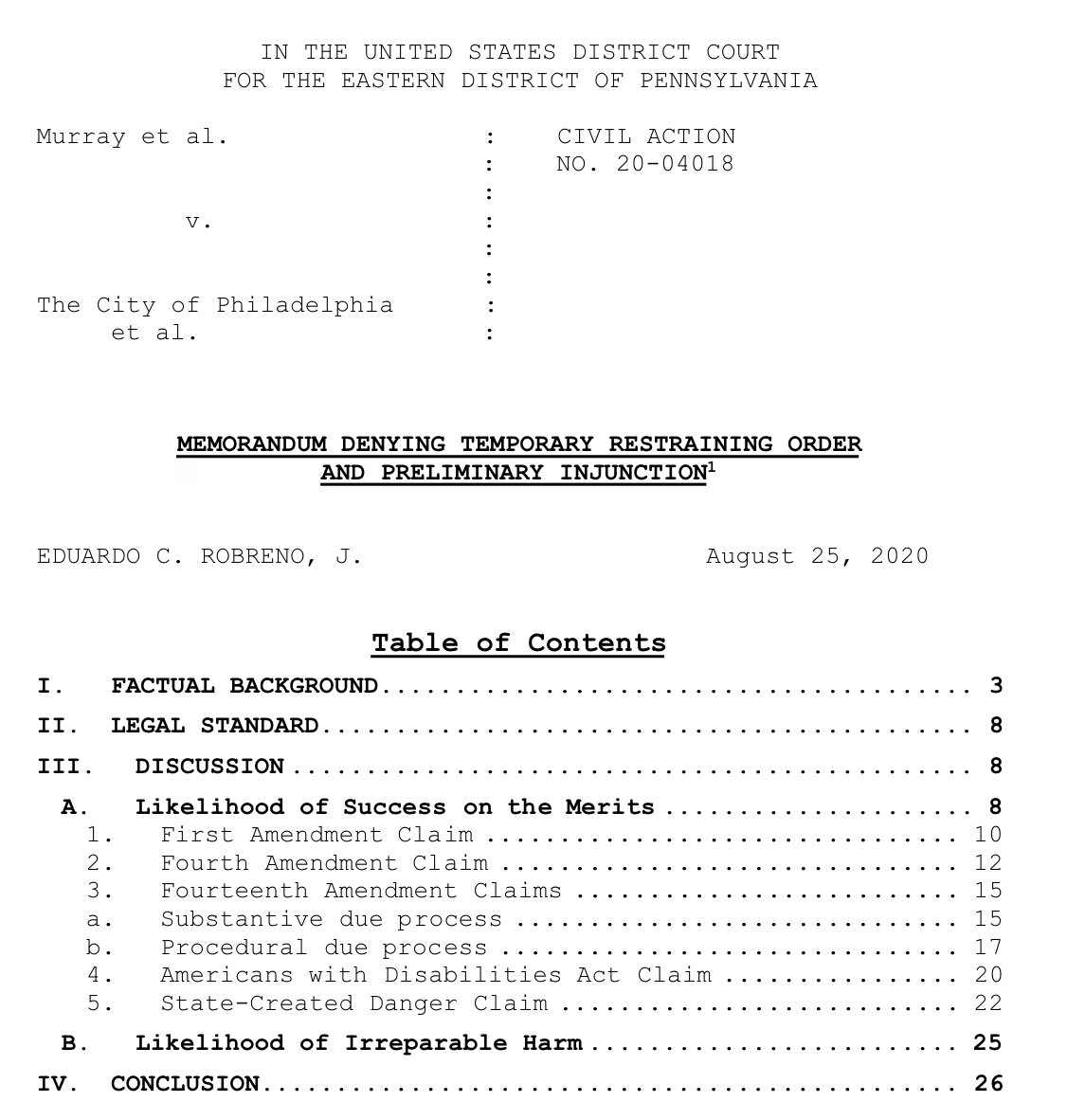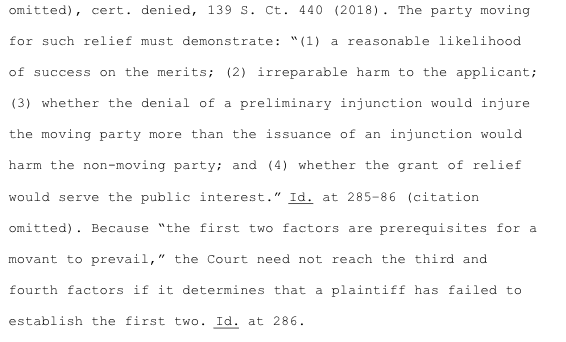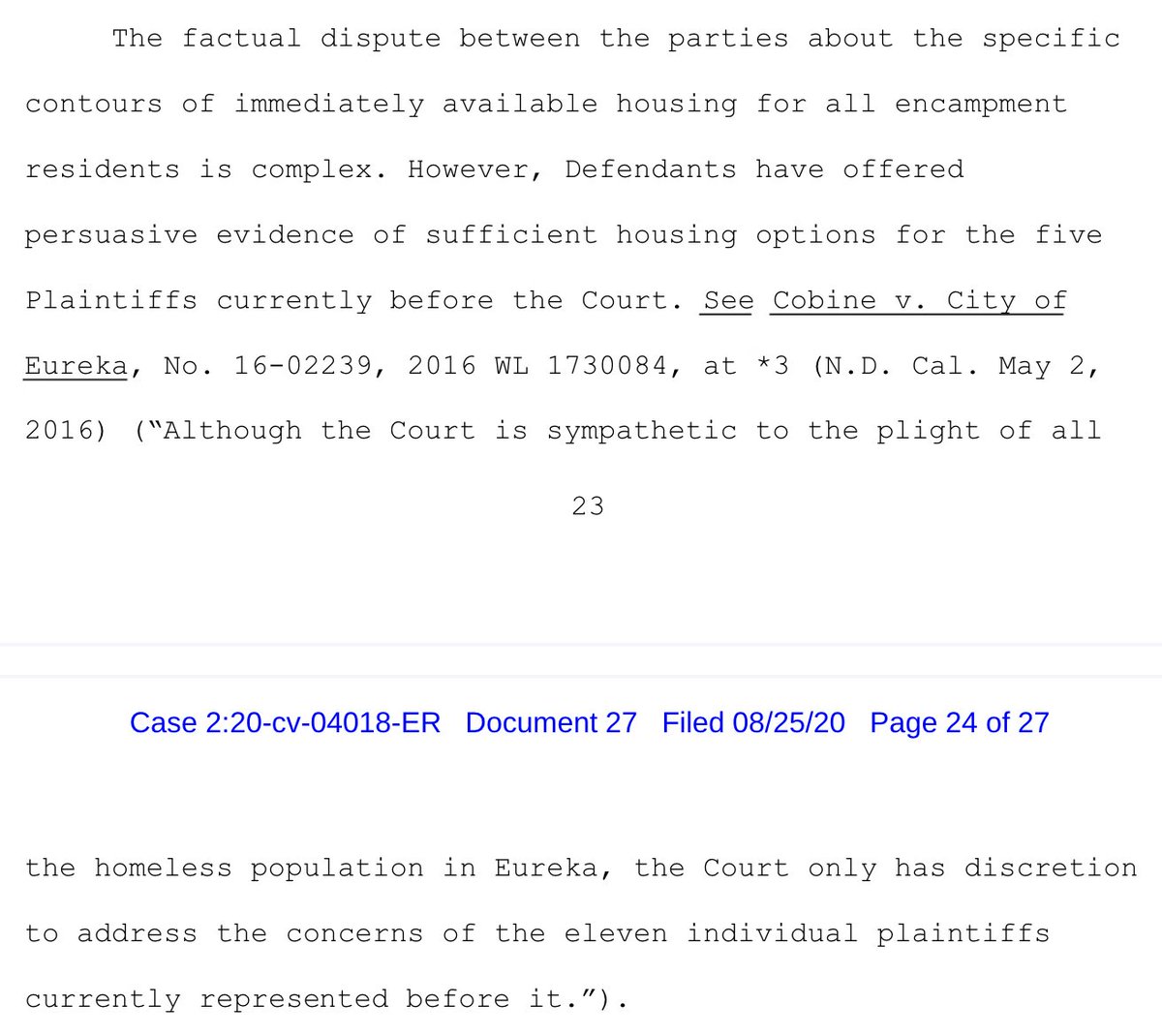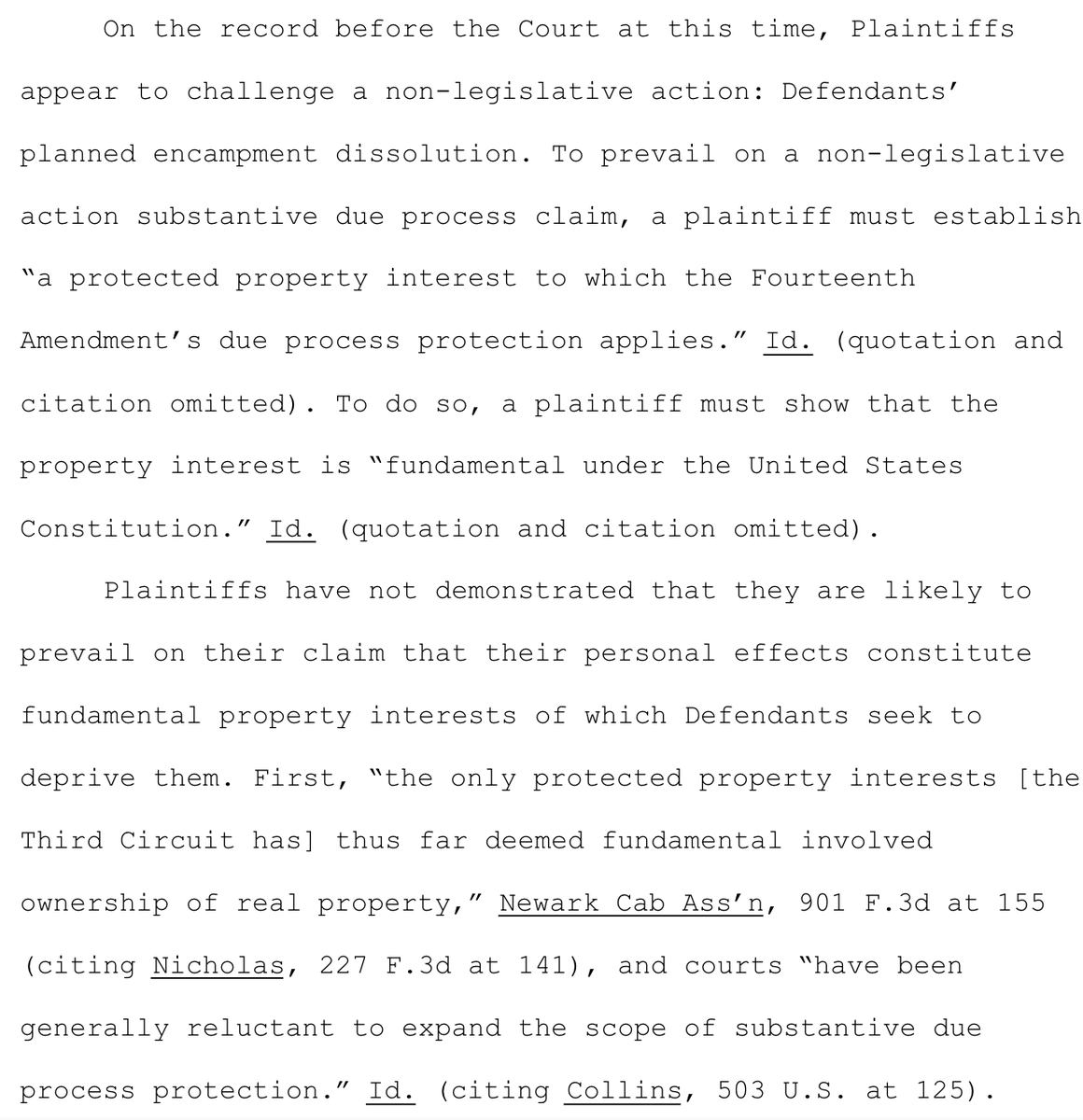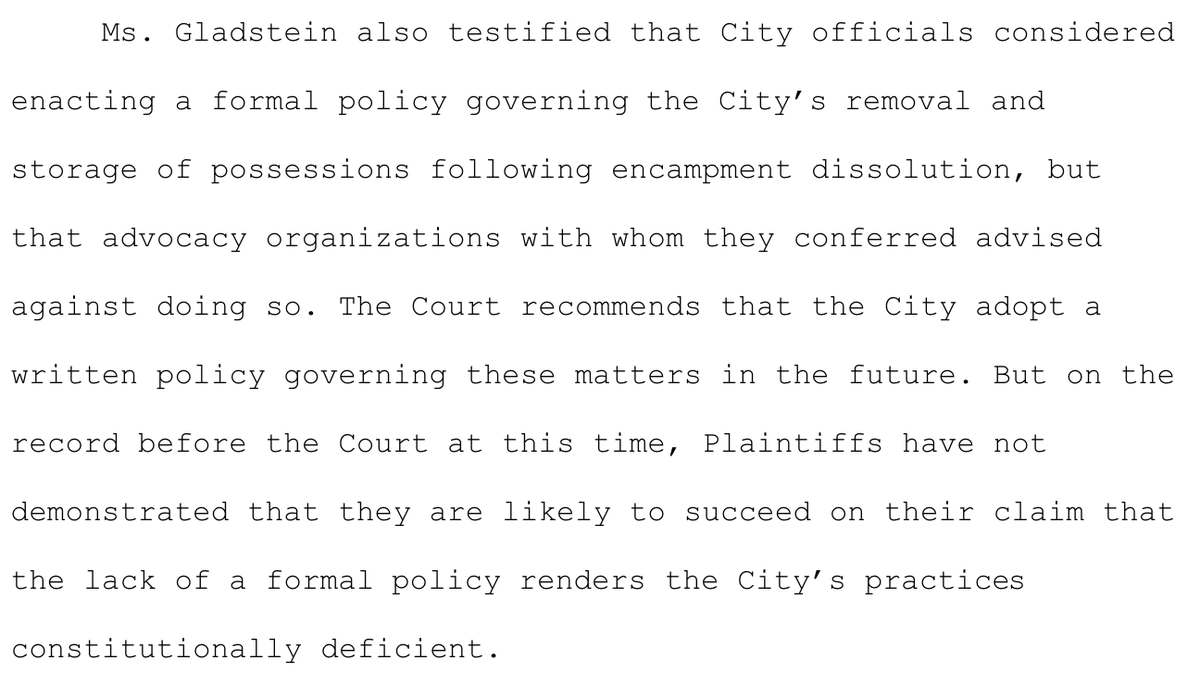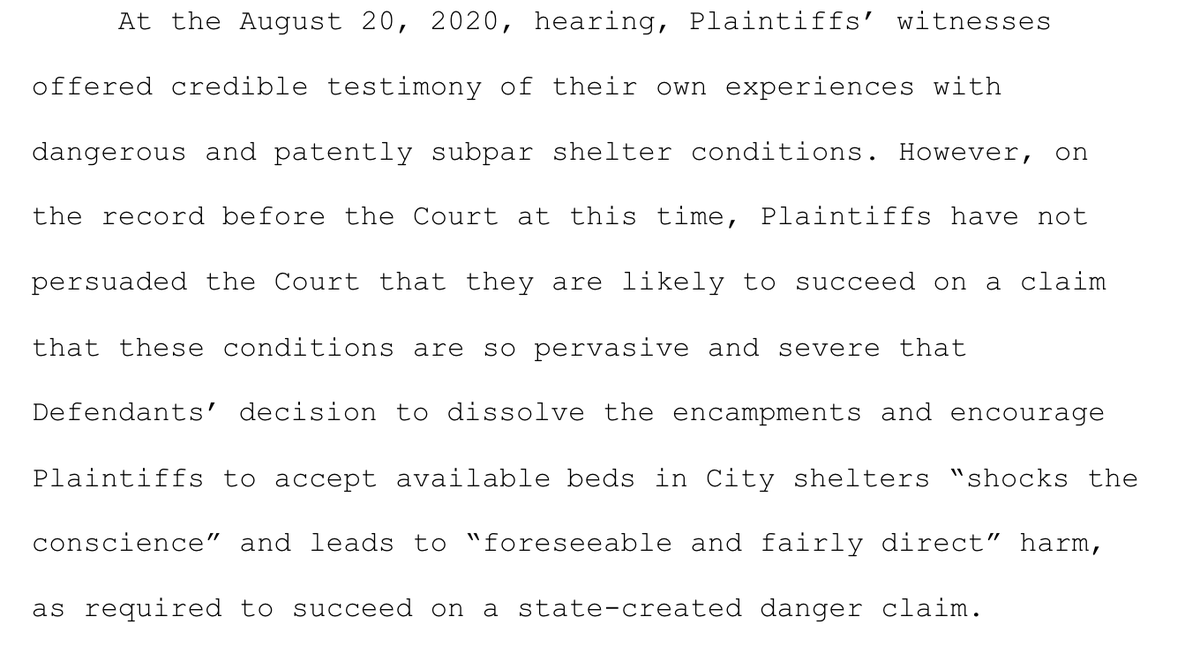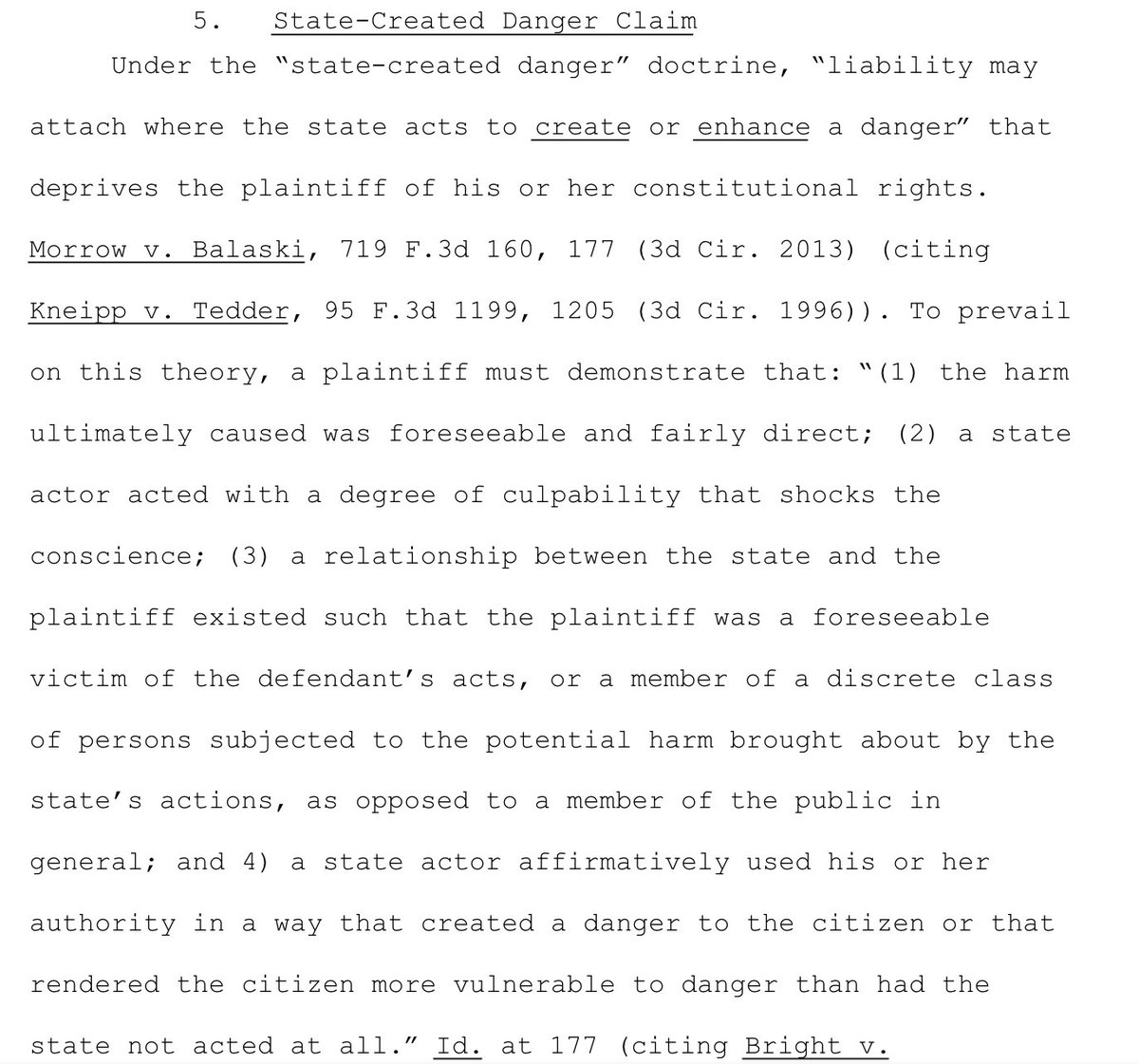Today District Judge Eduardo C Robreno, Jr denied an injunction to halt the city& #39;s action against the #JTDCamp and #CampTeddy homeless encampments, opening the door to eviction by the city. Why did this happen? let& #39;s dig into the labyrinthian world of court precedent to find out.
Heres the full text of the memo, Murray v. The City of Philadelphia. The case mostly concerns two big questions. 1-does removal of the camps violate residents& #39; constitutional right to protest? 2-will the city safeguard resident& #39;s rights to life+property? https://www.scribd.com/document/473639376/Federal-judge-rules-on-future-of-Philadelphia-s-homeless-encampment">https://www.scribd.com/document/...
Residents needed to demonstrate four main points in order for injunction to pass. The court decided that the first two points did not stand up to scrutiny, and so the last two were not discussed.
Plaintiffs made arguments for the injunction on behalf of the First, Fourth, and Fourteenth Amendment, as well as ADA and "state-created danger" claims. All five were denied.
the court makes a few basic rebuttals. 1-they do not believe that resident& #39;s concerns prove a credible threat to life, liberty and property. 2-they dont believe that failure to file an injunction will lead to irreparable harm to residents.
3-the court only has discretion to rule on the complaints of the 5 defendants, not all encampment residents. this is where it gets precedent-y, with the judge citing that old classic, Cobine v. City of Eureka, 2016.
court cites the city& #39;s stated intent to safeguard seized property as rebuttal. Very curious as to what constitutes "real property". argument could be made that the city plans to keep items safe, but the idea that personal effects aren& #39;t "real property" is a head-scratcher.
But it& #39;s totally cool with the court that the city doesn& #39;t have any formal procedures for property confiscated during a sweep, apparently. Who are these advocacy organizations the city is taking advice from? Are seizures really being done without formal procedures in place?
the court acknowledges "credible testimony" of "dangerous and patently subpar shelter conditions", but does not believe it reaches "shocks the conscience" levels of bad. This is a rebuttal for the state-created danger claim, outlined right.
So basically, the court has decided two major points. 1-the city& #39;s policies for removal and storage of property does not violate constitutional rights. 2-the removal of residents from camps does not constitute an irreversible harm given other available city housing options.
in conclusion, I& #39;m no lawyer - but it& #39;s deeply concerning that the court trusts the city to safeguard resident& #39;s property when they a) don& #39;t view it as "real property" b) acknowledge that the city has no formal policies in place for that very task.
They also didn& #39;t hear evidence from the defendants that proved that issues with shelter housing were substantial enough to constitute irreversible harm as a result of removal from the camps. the issues with the city& #39;s shelter program are systemic and for another tweet thread.
But in closing, the courts have decided that sweeping #JTDCamp and #CampTeddy is "permissible but not required". So now it& #39;s the mayor& #39;s offices& #39; move. They are required to give 72 hours notice for dispersal, but only time will tell when or even if that occurs. /end thread

 Read on Twitter
Read on Twitter